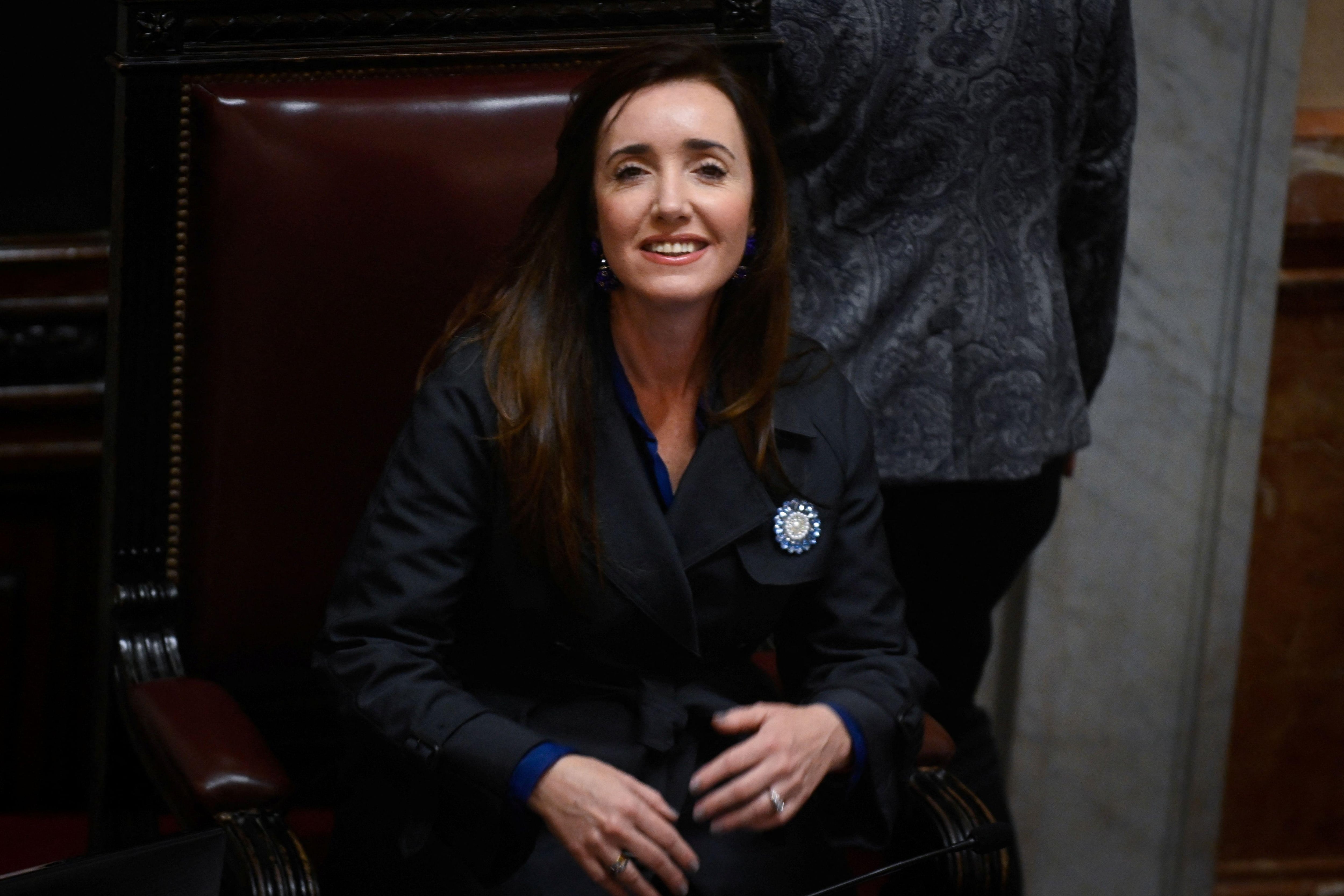Shortly after completing his first six months in power, the president of Argentina, Javier MileiThis Thursday, he obtained his first legislative victory, with the approval by the Senate of the so-called Basic Law.
The legislative package must now return to the Chamber of Deputies – which approved it in April – for approval, as senators have introduced some changes, but it is assumed that Congress will turn it into law.
LOOK: The confessions of the wife of the main leader of the Islamic State
The vote, which lasted until the early hours of Thursday, was tied at 36 votes, but the vote in favor of Vice President Victoria Villarruel led to the approval of the legislative package.
But while the points of the law were being discussed inside Parliament, hundreds of people outside were protesting. Some protesters threw stones, bottles and Molotov cocktails, and dozens of people were injured in clashes with police.
The Basic Law, together with a tax reform that the Senate will vote on next, represents the bases on which the libertarian president intends to carry out a liberal reform of the South American country.
“From 38 deputies and 7 senators, with terrorist groups attacking Congress, having to mobilize the Security Forces in defense of democracy, with the political caste resisting and operating until the last moment, and having to resort to the Vice-President’s tiebreaker. President of the Nation, Victoria Villarruel, tonight is a triumph for the Argentine people and the first step towards recovering our greatness”, said a statement issued by Casa Rosada.
O Basic Law and Starting Points for the Freedom of Argentines -its full name- is a shortened version of the so-called “Omnibus Law” that the Milei government presented to Congress at the beginning of the year, shortly after taking office.
Although the government reduced its size from more than 660 articles to about half, in February a majority in the Chamber of Deputies rejected the main articles, leading Milei to order the withdrawal of the parliamentary project, which returned to ground zero.
After several months of negotiations, the new package, which contains 232 articles, was approved by Deputies at the end of April, and has now received approval from the Upper Chamber, giving rise to it becoming the first legislation that the libertarian government manages to approve.
Here we count the four biggest changes that the new rules will bring.
1. Delegated powers
One of the most important keys to the Government Basic Law is that it gives the president extraordinary powers for one year, by declaring “the public emergency in administrative, economic, financial and energy matters”.
This will allow Milei to have, until mid-2025, powers that normally correspond to the Legislative Branch.
Thus, it will be able to decide on these issues without going through Congress.
However, it will not be an absolute power.
To achieve approval of the law, the Executive accepted some limitations, such as the commitment not to intervene or dissolve around 15 public organizations.
Among them is the National Genetic Data Bank (BNDG), which stores information on missing people in order to determine the possible parentage of children kidnapped and appropriated during the dictatorship.
Also two organizations linked to the area: the National Service for Health and Agri-food Quality (Senasa) and the National Institute of Industrial Technology (INTI).
Furthermore, the government has committed to guaranteeing funding to organizations included in the National Science, Technology and Innovation Plan.
During the period of delegated powers The president can legislate through decreeswhich must then be controlled by the same bicameral legislative Commission that controls decrees of necessity and urgency.

2. THE RIGI
He Large Investment Incentive Scheme (RIGI) It is one of the most controversial proposals in the Basic Law.
RIGI provides tax, customs and exchange benefits for 30 years, in addition to regulatory stability and protection against State abuse, for projects exceeding US$200 million, in order to encourage large investments, national and foreign, in the long term.
It is aimed at sectors considered strategic for the country’s development, such as energy, agriculture, mining (including lithium extraction) and infrastructure.
O Projects covered by RIGI may receive tax exemptions or reductions and administrative facilities for approval and implementation of projects.
The government considers RIGI a fundamental tool for attracting capital that can boost the Argentine economy.
According to him, the constant economic and standards -or debt default- have made investors distrust Argentina, meaning special incentives are needed to attract them.
But critics say this will give big companies a significant advantageespecially multinationals, and this will harm Argentine small and medium-sized companies (SMEs), which currently generate 70% of jobs.
Former president Cristina Fernández de Kirchner warned that RIGI will lead to the exploitation of Argentine natural resources at the hands of foreign companies, generating “an extractive economy with no added value” and establishing “colonialism, a 21st century version”.
“This will once again condemn Argentines to unemployment, which is already beginning to be seen and will deepen,” he said in a speech in May.

3. Privatizations
The Basic Law will allow the government put some state companies up for sale.
However, not all of them will be public sector companies, as proposed in the original project presented by Milei.
Far from it, of the approximately 40 companies that were “subject to privatization” in the initial proposal, only two, Interchargewhich provides airport services to airlines, and Energia Argentina SA (Enarsa), responsible for prospecting and exploiting hydrocarbon deposits and transporting and storing fuel, could be privatized.
Meanwhile, Aguas y Saneamientos Argentinos SA (Aysa), Belgrano Cargas y Logístico SA trains, Sociedad Operadora Ferroviaria and Corredores Viales are subject to private concession, that is, they are open to the incorporation of private capital, according to the project.
Both the state oil company Yacimientos Petrolificadores Fiscales (YPF) and the flag airline, Aerolíneas Argentinas, will continue to belong to the State, as will the public media (Argentine Radio and Television).

4. Labor reform
The Basic Law contains several articles that seek to modernize the labor regime and encourage the growth of formal private employment, which has been stagnant for more than a decade.
The standard offers benefits to employers who regularize their workers.
But, at the same time, it eliminates sanctions against “informal” work, removing the special remuneration that employees who are not properly registered today receive.
According to the government, this flexibility will lead more companies to hire staff, since, currently, many entrepreneurs are afraid to hire new employees due to the possibility of facing a labor process that could lead an SME to bankruptcy.
However, the Center for Research and Training of Central Workers of Argentina (CIFRA-CTA) warned that “By reducing the cost of violating the law, effective enforcement is discouragedtherefore this modification will tend to increase unregistered employment.”
On the other hand, a new figure of work is created: the independent worker with collaboratorswhich allows the employer to hire up to five people in the “monotax” category, who do not have a dependent relationship, which, according to critics, will increase job insecurity.
Source: Elcomercio
I am Jack Morton and I work in 24 News Recorder. I mostly cover world news and I have also authored 24 news recorder. I find this work highly interesting and it allows me to keep up with current events happening around the world.

:quality(75)/cloudfront-us-east-1.images.arcpublishing.com/elcomercio/KNWFNTP4ENEL5OJ6YND62GCKCA.jpg)





